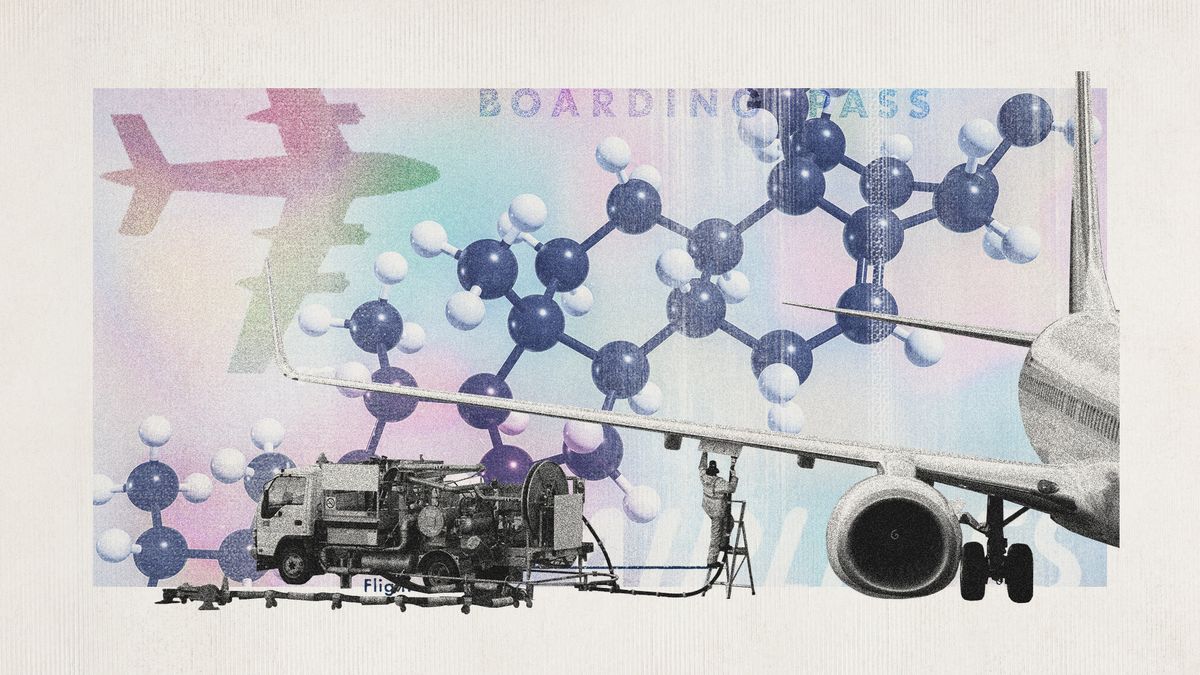Soaring Towards Sustainability: The Race for Eco-Friendly Aviation Fuel
As the aviation industry grapples with its environmental impact, airlines are intensifying efforts to secure sustainable aviation fuel (SAF). This race not only highlights innovative technologies but also raises questions about the future of eco-conscious travel. With the world increasingly focused on sustainability, eco-friendly aviation fuel is becoming a pivotal element in reducing carbon emissions and combating climate change.
The Environmental Challenge of Aviation
Aviation is a significant contributor to global greenhouse gas emissions, accounting for approximately 2-3% of the total emissions worldwide. As air travel continues to grow, so does the urgency to address its environmental impact. The International Air Transport Association (IATA) has set ambitious targets, aiming for a 50% reduction in net emissions by 2050 compared to 2005 levels. Achieving these goals necessitates a comprehensive approach, and sustainable aviation fuel is at the forefront of this strategy.
What is Sustainable Aviation Fuel?
Sustainable aviation fuel refers to biofuels made from renewable resources that can replace conventional jet fuel without requiring significant modifications to existing aircraft and infrastructure. SAF can be produced from various feedstocks, including:
- Biomass (such as agricultural residues, wood chips, and waste oils)
- Synthetic kerosene (produced from carbon dioxide and hydrogen)
- Algae and other renewable sources
Unlike traditional jet fuel, which is derived from fossil fuels, SAF can significantly lower lifecycle greenhouse gas emissions. Depending on the production method and feedstock used, emissions can be reduced by up to 80% compared to conventional fuels.
The Current Landscape of Eco-Friendly Aviation Fuel
Airlines around the globe are racing to incorporate sustainable aviation fuel into their operations. Major players in the industry, such as Boeing, Airbus, and airlines like Delta and United, are investing in the research and development of SAF. Some notable developments include:
- Partnerships for Production: Airlines are forming strategic partnerships with fuel producers to secure reliable sources of SAF. For instance, United Airlines has partnered with biofuel producer Fulcrum BioEnergy to create a facility that converts waste into sustainable fuel.
- Commercial Flights: Several airlines have begun operating commercial flights using a blend of SAF and traditional jet fuel. In 2020, KLM operated its first commercial flight using sustainable fuel made from cooking oil.
- Government Support: Various governments are implementing policies to promote the use of SAF, including subsidies and tax incentives for production and consumption.
The Economics of Sustainable Aviation Fuel
While the environmental benefits of sustainable aviation fuel are clear, the economic viability remains a challenge. Currently, SAF production is more expensive than conventional jet fuel, which can deter airlines from widespread adoption. However, several factors are changing the economic landscape:
- Technological Advancements: As technology improves, the costs associated with producing SAF are expected to decrease. Innovations in production methods and more efficient processing techniques are on the horizon.
- Increased Demand: As airlines commit to sustainability goals, the demand for SAF is expected to rise, leading to economies of scale that can help lower prices.
- Carbon Pricing: With the introduction of carbon pricing in many regions, the cost of traditional jet fuel may rise, making SAF more competitive.
The Role of Innovation in Eco-Friendly Aviation Fuel
Innovation is key in the race for eco-friendly aviation fuel. Researchers and engineers are exploring new feedstocks and production processes to enhance the sustainability and efficiency of SAF. Some promising areas of development include:
- Waste-to-Fuel Technologies: Converting waste materials into fuel not only reduces emissions but also addresses the growing waste management crisis. This approach is being explored in various pilot projects worldwide.
- Electrofuels: The use of renewable electricity to produce synthetic fuels offers a pathway to create SAF with a minimal carbon footprint. This technology is still in its infancy but holds great potential.
- Advanced Feedstocks: Research into alternative feedstocks, such as algae and agricultural waste, is ongoing, aiming to identify sources that are both sustainable and economically viable.
Challenges and Opportunities Ahead
Despite the progress being made, the road to widespread adoption of sustainable aviation fuel is not without its challenges. Some of the critical hurdles include:
- Infrastructure Development: Significant investments in infrastructure are required to support the production and distribution of SAF. This includes refineries and fueling stations capable of handling the new fuel.
- Regulatory Frameworks: Clear and consistent regulations are essential to foster growth in the SAF market. Governments need to establish guidelines that support the development and use of sustainable fuels.
- Public Awareness: Educating the public about the benefits of SAF and sustainable aviation practices is crucial for garnering support and driving demand.
The Future of Eco-Conscious Travel
The race for sustainable aviation fuel represents a crucial step towards a more eco-conscious future for travel. As airlines invest in SAF and innovate around its production, passengers can look forward to a new era where flying is not synonymous with environmental harm. The future of air travel will likely see a blend of traditional fuels and SAF, with the goal of achieving net-zero emissions in the coming decades.
In conclusion, the aviation industry is on the brink of a significant transformation. With the commitment to sustainable aviation fuel, airlines are not only addressing their environmental responsibilities but also paving the way for a greener future. As technology progresses and economies of scale are realized, eco-friendly aviation fuel may soon become the norm, allowing travelers to soar towards sustainability without compromising their love for adventure.
See more Business Focus Insider Team

